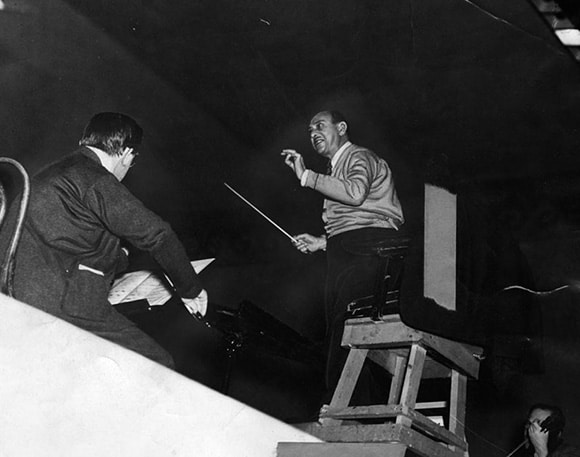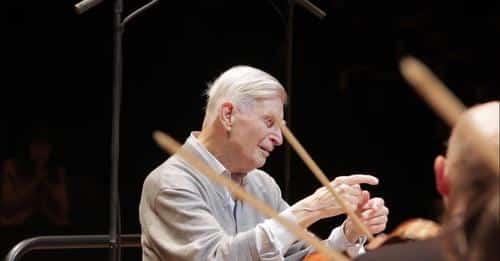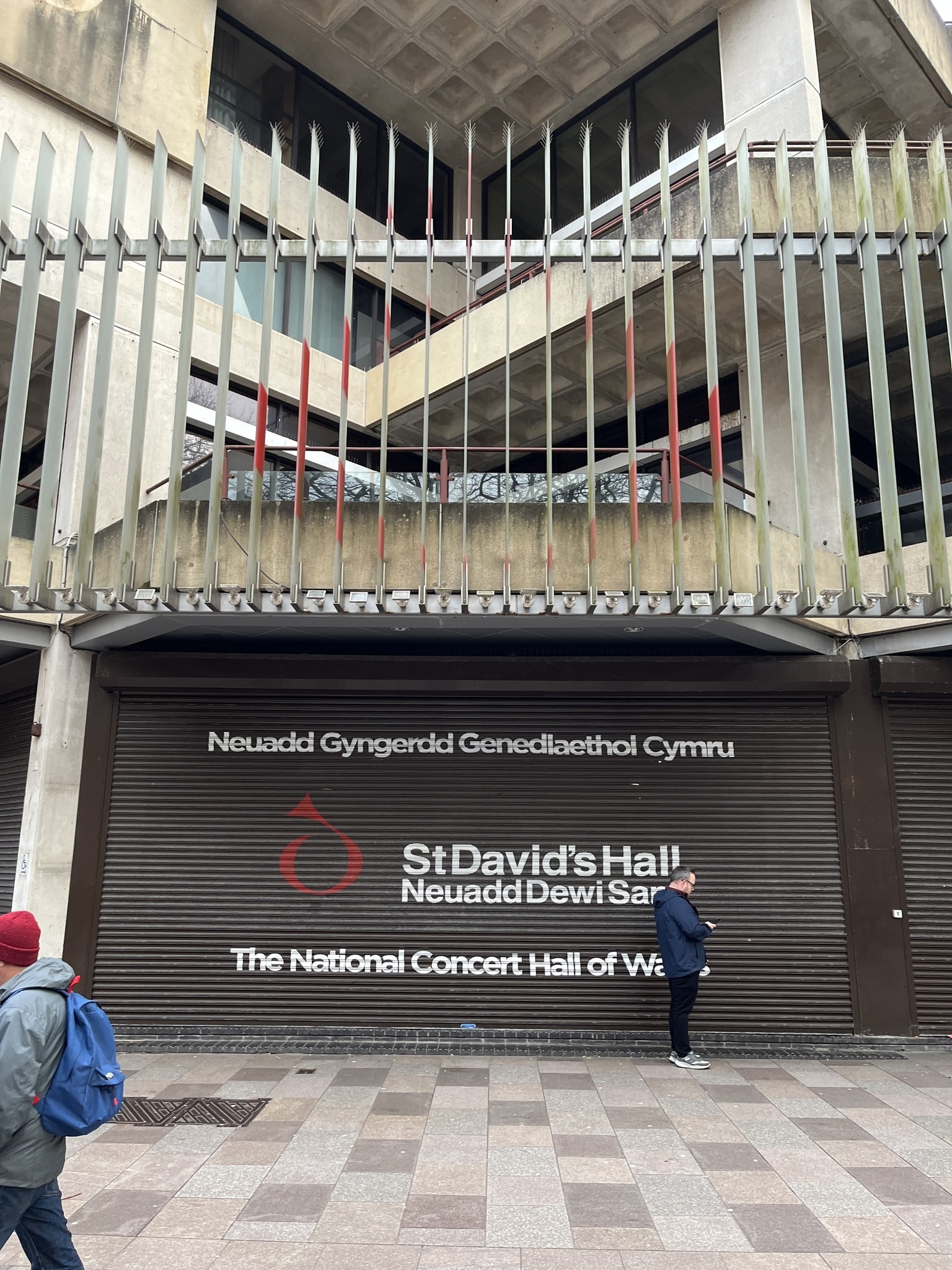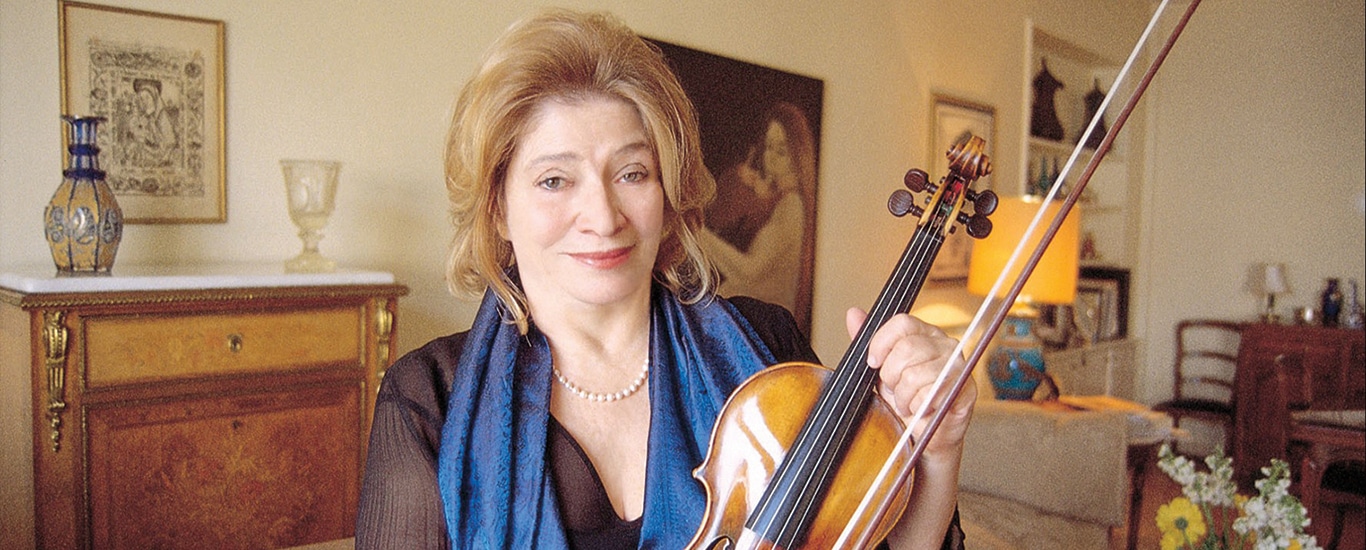As fine a Gurre-Lieder as you can find
mainFrom the Lebrecht Album of the Week:
It is so rare to hear the Gurre Lieder live that most of us are acquainted with it only on record — in memorable interpretations by Rafael Kubelik, Pierre Boulez, Riccardo Chailly, Claudio Abbado and others. The work employs a vast orchestra and chorus for an unbroken duration of ninety minutes, much of which occupies a zone of uncertainty as to whether what we are hearing is ancient or modern.
Schoenberg began composing the cycle in Wagnerian modalities in 1900, abandoned it three years later, finished it in 1911 as a provocative atonalist, and achieved the greatest triumph of his life at its 1913 Vienna premiere, turning his back on the cheering audience and acknowledging only the participant musicians. Austere Arnold was not cut out for popular acclaim….

Read the full review here.
And here.
Also here.
Take your pick.





A wonderful masterpiece!
The Gurrelieder being one of my favorite works of all time, I feel compelled to respond. I yet have to hear a version that surpasses what is in my opinion the very best one: Boston Symphony with Ozawa and a legendary cast: Norman, McCracken, Troyanos — singers of a vein that simply does not exist today and is unlikely to reappear. As for whether the Gurrelieder is ancient or modern, it seems to me that it finds itself clearly inscribed in Wagner’s lineage, and is therefore resolutely modern. The concert program of the premiere, of which I own a copy, is actually a 95 page musical analysis of the work by Alban Berg — a telling commentary on the audiences at the time. One of the greatest works of all time by an immense composer, before he ironically fell into the trap of atonalism and serialism. Yet that Schoenberg could write the Gurrelieder, while still in his twenties, speaks volumes as to his skills as a composer. It’s indeed hard to imagine many of today’s so-called composers to be able a work of such quality in a tonal language. I also recommend the wonderful Gurrelieder DVD (a little hard to find, though perhaps on amazon.es) by Josep Pons and a youth Spanish orchestra — a wonderful document as it comprises both a performance and extensive footage of rehearsal time.
Here is nice and, I hope, noteworthy coincidence: two weeks ago here in Zagreb we were blessed by the first performance of this wonderful masterpiece in Croatia, by the joint Croatian music forces of HRT (Croatian Radiotelevision Symphony Orchesta and Choir), HNK (Croatian National Theater Opera Orchestra and Choir), Zagreb Music Academy (students choir) and Lisinski Concert Hall (coproduction). There were 280 performers on the stage and full audience, twice. Person behind this idea and in front of the giant ensemble was maestro Nikša Bareza, this way also celebrating his 80th birthday. So, for Croatia it was literary event of the century: the first performance 103 years after the premiere in Vienna, and probably the last one for the next 100 years.
Only two internationals were engaged: excellent German tenor Michael Hendrick, and a contrabass trombone (both instrument and player), also from Germany (sorry, didn’t get his name).
More here (with a little help of google translate): http://www.vecernji.hr/glazba/publika-ce-pamtiti-pjesme-iz-gurrea-podvig-maestra-bareze-1116547
Gurrelieder has magical episodes, and some peculiar flaws which don’t matter very much (like the awkward writing for the voice at places with wrong accents, or the Sprechgesang of ‘Klaus-Narr’). The Amsterdam staged production was very interesting and probably this is the best way of presenting the work: like a bizarre dream.
“As for whether the Gurrelieder is ancient or modern, it seems to me that it finds itself clearly inscribed in Wagner’s lineage, and is therefore resolutely modern.” Strange comment, given that Wagner lived in the 19th century. If the commentor meant that the piece has not ‘aged’, I agree. If Wagner for him is modern, it seems the comment stems from ca. 1860.
“It’s indeed hard to imagine many of today’s so-called composers to be able [to write] a work of such quality in a tonal language.” If such composers were around, they would not need so many musicians, + chorus + soloists to arrive at a comparable result, but then – they would not be taken seriously and considered arch-conservative kitsch-mongers.
So it is raining Gurreliedero on CD recently. There was also the wonderful set conducted by Markus Stenz on Hyperion, reviewed favourably everywhere too (including by our friend Basia Jaworski who put it second after the historical one under René Leibowitz), and after the staged version by the Dutch National Opera (Marc Albrecht/dir. Pierre Audi) which is to appear on DVD/Blue Ray.
Did some interesting things but just couldn’t write a decent tune if his life depended on it, which really should have ruled out a career as a composer… Like his paintings really, almost there but not quite.
You can’t be serious, surely. What about the lovely “Vorspiel”, Tove’s “Nun sag ich dir zum ersten Mal”, and “Erwacht, König Waldemars Mannen wert!” – to mention only three and not to forget the glorious final chorus “Seht die Sonne!”.
Have we been listening to the same piece?
oh yeah, cause classical music is all about writing “tunes”, I forgot
Oh yeah man, if you forgot that then you might be better off listening to Black Metal instead ‘cos it has less toons, don’t you fink so?
Art music is not ‘about tunes’. And then, Schoenberg’s early music is full of melodic expression and interest, he was a melodic composer in the first place and had brilliant technique, in contrast with his painting which has always remained amateurish. It’s just very regrettable that he got off the rails in musical terms, but his musical gifts where those of a genius, as many flashes of great music before serialism testify.
Big call Norman. I have Sinopoli with the Staatskapelle Dresden and Jansons with the BRSO on DVD and I am content with these versions. Also Jansons rehearses the piece with the VPO on his Concertgebouw Heldenleben DVD. IMO Gurrelieder has a cult following which has room for a wide variety of interpretations, I remember the Penguin Guide rejecting the Kubelik recording even though it seemed to be the best availalable at the time.
“…an unbroken duration of ninety minutes”?! Blimey, it’d be ghastly done that quickly!
I have heard it live only once: Philadelphia Orchestra in Carnegie Hall in 2000. What a glorious work! What a stirring performance!
I also remember the NY Times review by Bernard Holland. Not only did I disagree with several of his points, but he misattributed the Waldemar solo to Thomas Moser, who had had to drop out due to illness. Boo!
Among recent recordings of Gurre-Lieder there is also a very fine one by the Gürzenich Orchestra Cologne, cond. Markus Stenz.
I didn’t care for the somewhat less recent one by Rattle with the Berlin P, and sold it after acquiring the one above.